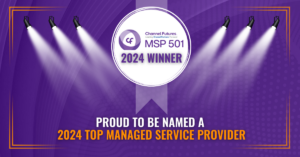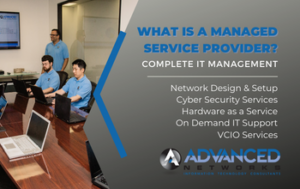 It’s a good idea to have your business’ IT infrastructure examined by a certified and reliable IT services provider in Los Angeles every now and then. Upon closer inspection, you’ll very likely find that you’re spending too much money on a certain area. If your business relies heavily on desktop computers, for example, there’s a possibility that that’s one area where you can greatly reduce costs while also simplifying maintenance and upgrades. A setup based on thin or zero clients might be just what you need to cut costs without completely sacrificing important functions.
It’s a good idea to have your business’ IT infrastructure examined by a certified and reliable IT services provider in Los Angeles every now and then. Upon closer inspection, you’ll very likely find that you’re spending too much money on a certain area. If your business relies heavily on desktop computers, for example, there’s a possibility that that’s one area where you can greatly reduce costs while also simplifying maintenance and upgrades. A setup based on thin or zero clients might be just what you need to cut costs without completely sacrificing important functions.
Thin Clients
Many businesses use conventional desktop computers connected to a network and server for easier file sharing and collaboration. However, a thin client is a very basic and lightweight machine built specifically for accessing a server, either one that’s located remotely (in the case of cloud computing) or on the premises. Since the thin client relies heavily on the server computer, it requires minimal processing power and functionality. By contrast, a desktop computer can serve as a purely standalone machine designed to take on multiple roles by itself.
With an increasing amount of business computing work being carried out remotely, the necessity to have powerful desktop computers is much rarer than it once was. A great deal of important business computing operations, such as CRM, inventory management, and reservation management, are now provided in the form of cloud services, meaning no software needs to be installed on a local computer. As everything runs in a browser and things like application maintenance and data storage are taken care of remotely, thin clients provide all the necessary computing local power.
Simply put, using conventional desktop computers every day is usually overkill these days, unless of course, your business requires them for a specific purpose and/or does not intend to migrate to a primarily cloud-computing environment. Thin clients come in many different forms, but they usually provide everything you need for running browser-based applications. They usually feature a minimalistic operating system, a network interface, and a small amount of flash memory for local data storage. Aside from that, a thin client is basically just a monitor, keyboard, and mouse.
Zero Clients
When researching thin clients, cloud computing solutions, and other IT services in Los Angeles, you may also come across zero clients. They work the same way as thin clients; the only difference is they don’t have an operating system. Instead, all they have is the most basic firmware necessary to initialize network communication so that the remote server can do the rest of the work. Since zero clients feature minimal data storage of their own (typically enough just for the required firmware), they’re also far less vulnerable to hacking and attacks by malicious software.
While thin clients require minimal setup and maintenance, zero clients require virtually none. Like thin clients, they are also available in all-in-one form factors, complete with monitors or as small boxes providing the necessary ports for connecting a monitor, keyboard, and mouse. On the other hand, zero clients are not as flexible as thin clients, since they can only use one protocol, which means usage options are more limited. As such, they’re generally better suited for single-purpose machines designed to access a single cloud-based service.
Whatever your choice may be, always consider the one that will help you reduce costs while still maintaining an efficient and stable business operation. At Advanced Networks, we can help you decide between thin and zero clients. Our IT services team in Los Angeles is always ready to answer any IT-related queries you may have. Contact us today to learn more.




